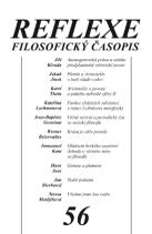Immanuel Kant on the Moral Determination of the Will
The article deals with the problem of the moral determination of the will in Kant’s ethics. The starting point is the critical position marked by the “rigoristic concept of ethics”, i.e. the view that only the objective moral law presents a sufficient determining ground of the will, including subjectively, as an incentive of the will. Based on an examination of
Kant’s lectures on ethics and Kant’s manuscript reflections, it can be shown that his position regarding moral determination of human will is much more ambiguous both in the pre-critical phase and in his critical writings. In spite of this ambiguity, Kant retains his critical position: only the moral law remains both a determining ground and an incentive
of the will. Happiness and religion form the “necessary complement” of the system of morality.
Backlinks: Reflexe 52
